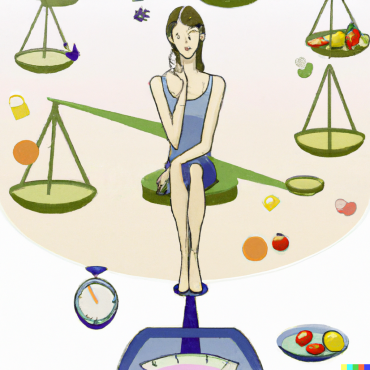Today’s media intimidates many women from having children after they’ve reached the age of 30. They claim that women after 30 are most likely to have stillbirths and children with deformities. Like magic, the day you turn 30, your future children are suddenly doomed.

While, yes, there are times where women are most fertile in their lives, it is unfair to scare women into thinking that they will have completely deformed, unhealthy children after reaching precisely 30 years old. Many celebrities in their 40’s are having children who are perfectly normal and healthy. And there is scientific background that can back up this claim that there is no definite, precise age where women wake up one day being infertile. Pregnancy is still possible even after reaching menopause–women may never be 100% sure when they can stop using some form of contraceptives.
It is very common for women to have children over the age of 30. In 2012, the Office for National Statistics (ONS) reported that 49% of live births in England and Wales were to mothers who were 30 years and older and one in 25 babies are born to women over 40.
Women are still fertile and having successful births even after reaching the dreaded age. In fact, a study published by David Dunson of Duke University in 2004 discovered that 82% of women aged 35-39 who had sex twice a week would fall pregnant within one year.
This article posted a few years ago warns that women over the age of 35 are more likely to mother babies with Down syndrome: “‘By age 40, probably half of the eggs are aneuploidies,’ says Michael Lampson, an assistant professor of biology at Penn who has co-authored research into the mechanism behind the abnormalities.” The actual statistics state that 75% of babies born with Down Syndrome are born to women under 35.Though it is true that this could be largely because fewer women have children over 35, however, overall, 99 of 100 women will not have children with Down syndrome.
It is more frequent for older women to give birth to twins or triplets, which do have some marginally greater risks compared to singleton pregnancies at 5% higher risk as well as some risk for premature birth. Huffington post reported in 2012 that 7% of births for women over 40 were twins (meaning 93% were not), while 5% of women in their 30s and 2% of women under 24 had twins. So there was a 5% increase in risk for twins, but you can have twins even when you are 24 and under! Healthy twins are born all of the time (fetal death rate for twins is only 1.6%).
We are all worried about infertility in aging women, but what about men?

Though not as openly published as it is for women on the Daily Mail, there is also evidence that sperm declines in quality with aging men. In contrast with younger men, older men who have problems with sperm quality tend to be more genetically-based and thus not as reversible. The Independent recently posted an article explaining how older men father children with higher cancer rates, mental disorders, and greater risk for substance abuse problems, suicide, and low educational attainment. Just as women produce lower quality eggs with age, men produce lower quality sperm with lower mobility, though there is no particular “threshold” that shows exactly when this happens for either sex.
There have also been recent studies showing how men who keep their cell phones in their front pockets produce fewer sperm that are less motile, making it another factor of increasing infertility in men.
While it is true that both men and women are generally more fertile in their 20s, there is no exact age that states when either becomes more infertile. It all depends on the person. Though the media makes it seem like you will give birth to a child with 4 arms and 8 eyes at the age of 30. Most of the risks that are associated with declining fertility are marginal and vary from person to person.
Besides, all of the scientific evidence, you should do what you feel is right. Of course if you are concerned, the best thing to do is consult your doctor. But before you do, don’t let the media pressure you into feeling like you need to rush into baby-making or, on the other end, make you feel like you should put it off. Having children changes your life forever and the biggest part of your choice should be if you are ready (not just physically).























































Comments